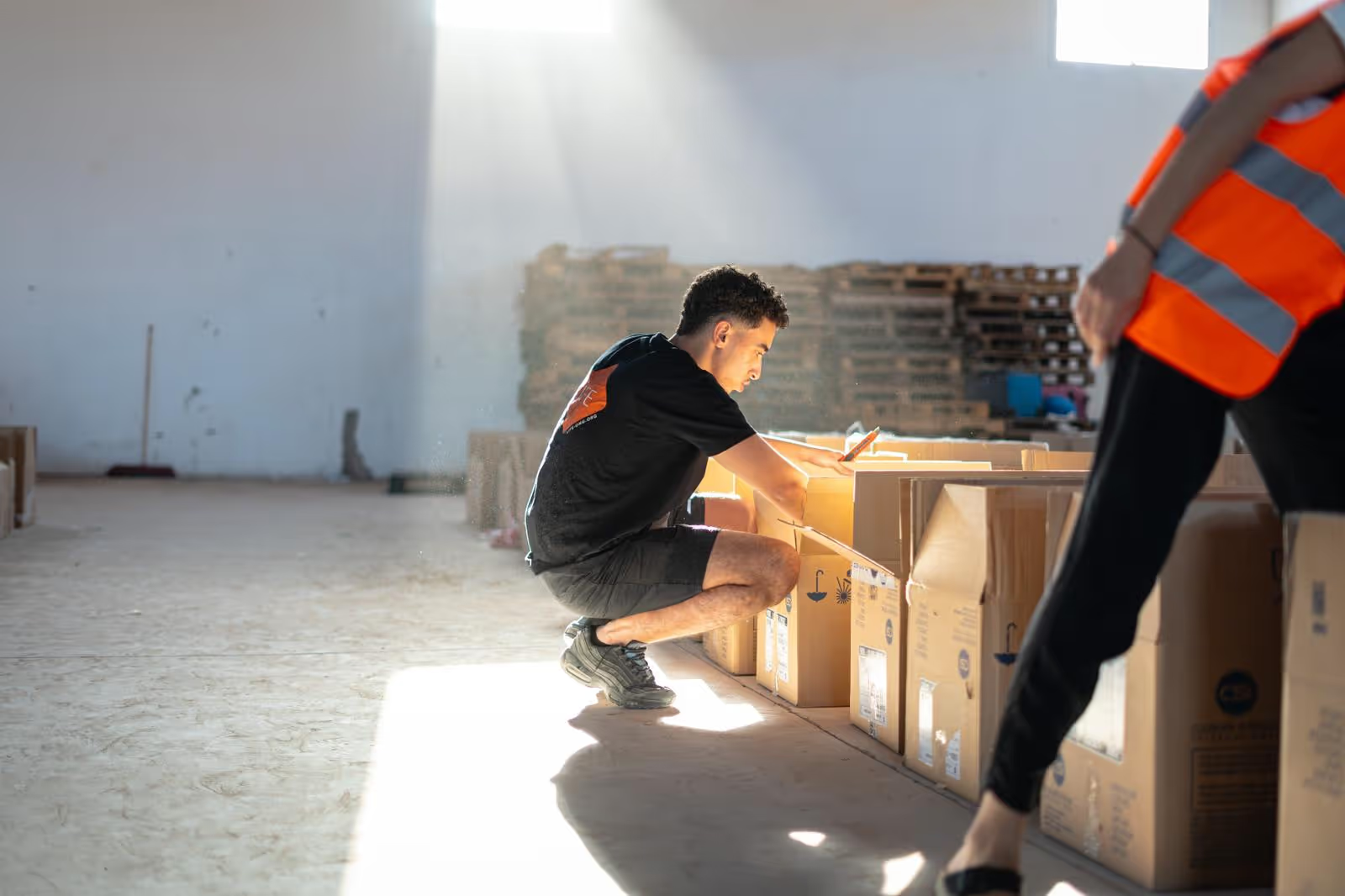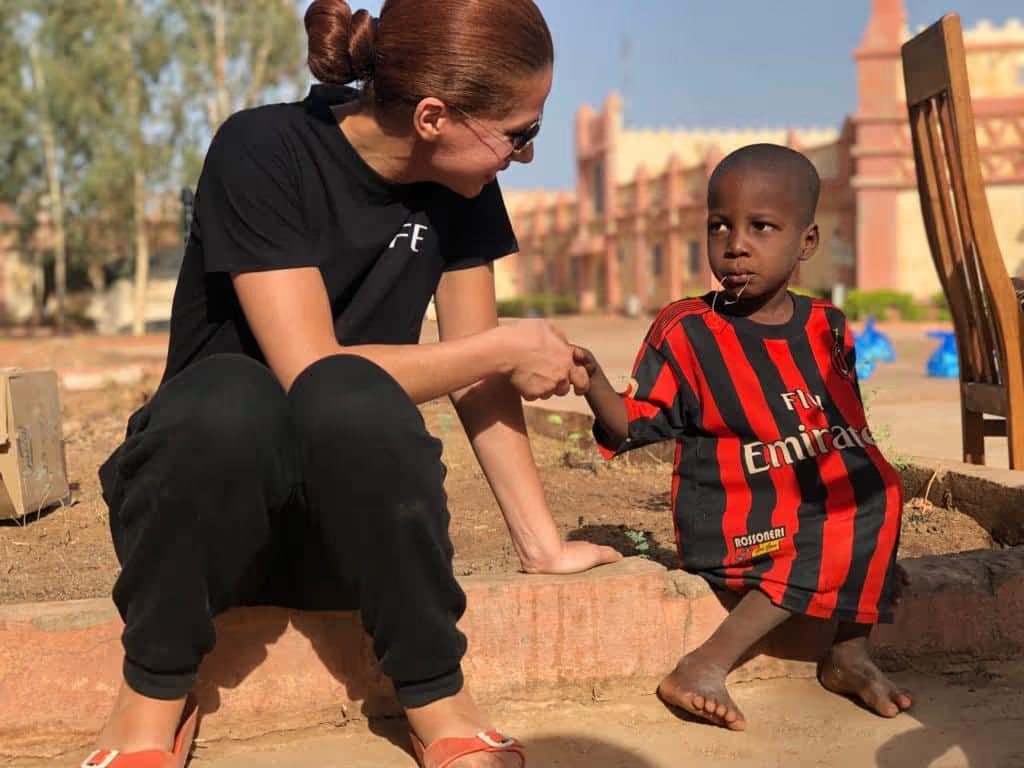Women's rights: between progress and challenges

Les droits des femmes dans le monde. On en parle beaucoup, surtout en ce 8 mars, journée internationale des femmes ! Mais qu’en est-il ? Si la lutte pour l’égalité est un combat de chaque instant et que chaque progrès est un pas de plus vers une société plus juste, les obstacles ne sont jamais loin. Et les disparités mondiales dans la réalisation de ces droits sont grandes. Derrière chaque avancée se cachent encore de nombreux défis qui doivent renforcer notre détermination à agir et à ne pas baisser la garde. Ensemble, nous pouvons contribuer à construire un monde où chaque femme s’épanouit pleinement.
Quels sont les progrès des droits des femmes ?
Le droit de vote
Les femmes ont gagné le droit de vote dans de nombreux pays à travers le monde, élargissant ainsi leur participation démocratique. Cette avancée historique leur permet de faire entendre leur voix dans les processus politiques et de contribuer à façonner les politiques publiques. La Nouvelle-Zélande a ouvert la voie en 1919. En France, il a fallu attendre 1945. Le dernier pays à l’avoir validé est l’Arabie Saoudite en 2015.
L’accès à l’éducation
L’accès à l’éducation des femmes à l’échelle mondiale est une pierre angulaire de la justice sociale et du progrès économique. Des avancées indéniables ont été réalisées dans le domaine.
Augmentation du taux de scolarisation
Au cours des dernières décennies, le taux de scolarisation des filles a considérablement augmenté dans beaucoup de pays. Un peu partout, des efforts ont été déployés pour éliminer les barrières financières, culturelles et sociales qui les empêchent d’accéder à l’éducation.
Chez LIFE, nous travaillons jour après jour à faciliter l’accès aux bancs de l’école des filles et enfants du monde entier. Au Bangladesh par exemple, en novembre 2022, 100 vélos ont été distribués à de jeunes filles pour qu’elles puissent se rendre à l’école. La construction de puits d’eau potable dans les villages leur permet également de ne plus aller puiser de l’eau à des kilomètres, tâche qui leur est la plupart du temps dédiée. Grâce à eux, le taux de scolarisation augmente.

Lois en faveur de l’éducation des filles
De nombreux pays ont adopté des lois et des politiques visant à promouvoir l’éducation des filles et à garantir leur accès à l’école. Ces mesures ont contribué à réduire les disparités entre les sexes dans le domaine de l’éducation. Ces lois sont cependant parfois difficiles à faire appliquer, par manque de moyens financiers ou de moyens de « pression ».
∙ En 2004, le Nigéria a adopté une loi veillant à garantir une éducation gratuite et obligatoire pour les filles jusqu’au niveau secondaire.
∙ Le Ghana, l’Argentine, l’Indonésie et les Seychelles ont adopté des mesures juridiques assurant aux filles un accès légal à un enseignement gratuit et obligatoire jusqu’à leurs 10 ans.
Sensibilisation accrue
La sensibilisation aux avantages de l’éducation des filles s’est renforcée un peu partout. Elle permet progressivement de changer les attitudes et les comportements, encourageant les familles à investir dans l’éducation de leurs filles. On peut relever les efforts du Bénin par exemple qui a mené des campagnes d’information des communautés sur l’importance de la scolarisation des filles au niveau secondaire.
Le leadership féminin
Que ce soit dans le monde des affaires, la politique, les sciences, les arts, l’éducation ou d’autres secteurs, la participation active, l’influence et la prise de décision exercées par les femmes est de plus en plus important.
Celles-ci inspirent les générations futures et montrent qu'elles peuvent exceller dans tous les domaines au même titre que les hommes. Elles contribuent à la promotion de l’égalité des sexes, et à la création d’une société plus équitable et inclusive pour tous.
Les droits sexuels et reproductifs
Les progrès dans les droits sexuels et reproductifs des femmes leur permettent de contrôler leur propre corps et leur propre reproduction, renforçant ainsi leur autonomie. L’accès à des services de santé de qualité leur assure de pouvoir prendre des décisions éclairées sur leur santé et leur vie familiale. Mais ces droits sont fragiles dans de nombreux pays. Il est important que nous soyons tous vigilants pour ne pas faire marche arrière. En France, la loi Veil votée en 1975 est symbolique. Elle légalise l’IVG. Mais, actuellement, seulement 58 pays autorisent l’avortement sans condition !
Le progrès de la reconnaissance des violences basées sur le genre
Des actions plus vigoureuses, des lois plus strictes pour lutter contre ces formes de violence sont de plus en plus adoptées un peu partout dans le monde. Elles veillent à protéger les femmes contre la violence domestique, le harcèlement sexuel, le trafic sexuel et d’autres formes de violence liée au genre. En France, la loi sur le harcèlement sexuel a été votée en 1992. Aux États-Unis, la « Violence Against Women Act » l’a été en 1994. En Espagne, la « Ley Orgánica de Medidas de Protección Integral contra la Violencia de Género » a vu le jour en 2004. En Inde, la « Protection of Women from Domestic Violence Act » a été adoptée en 2005. Celle-ci vise à protéger les femmes contre la violence domestique et à leur fournir des recours légaux.

L’inclusion dans les espaces de prise de décision
Les efforts visant à promouvoir l’inclusion des femmes dans les processus de prise de décision ont porté leurs fruits. On assiste en effet à une augmentation de leur nombre à des postes importants au sein des organes gouvernementaux, des conseils d’administration et d’autres instances.
Les défis à surmonter
Si les progrès sont indéniables dans la lutte pour les droits des femmes, il existe encore de nombreux combats à mener, mais aussi de fortes disparités entre les pays, et notamment entre le Nord et le Sud.
Les disparités salariales
Les femmes continuent de faire face à des disparités salariales, gagnant en moyenne moins que leurs homologues masculins pour un travail équivalent. Ces écarts persistent malgré les progrès réalisés dans le domaine de l’égalité des sexes et contribuent à limiter l’autonomie financière des femmes.
L’équilibre entre vie professionnelle et personnelle
Les attentes sociales et les pressions économiques peuvent rendre difficile la conciliation des responsabilités professionnelles et familiales des femmes. Au final, cela les empêche de réaliser leur plein potentiel dans tous les domaines de leur vie.
Les stéréotypes de genre
Ils persistent dans la société, limitant les choix de carrière et les opportunités de développement professionnel pour de nombreuses femmes. Les attentes sociales traditionnelles concernant leur rôle et leurs responsabilités continuent de peser sur leur liberté individuelle et leur épanouissement.
Le combat pour la majorité juridique et le divorce
Dans de trop nombreux pays encore, les femmes n’ont pas le droit de faire certaines choses du quotidien sans l’autorisation d’un homme de la famille : mari, frère, père, etc. En Arabie Saoudite, elles ne peuvent pas conduire, voyager, travailler sans avoir l’aval d’un tuteur masculin. Cette situation se retrouve dans au moins 16 pays. La demande de divorce peut être aussi très compliquée à faire pour une femme : entre interdiction totale, demande de l’autorisation au mari, perte de leurs droits, etc.
Les violences basées sur le genre
La violence à l’égard des femmes reste endémique, avec des taux alarmants de harcèlement sexuel, de violence domestique et d’agressions sexuelles signalées dans le monde entier. Ces formes de violence entravent leur sécurité, limitent leur liberté de mouvement et leur participation à la vie publique. L'ONU estime que 137 femmes sont tuées chaque jour par un membre de leur famille. Environ 200 millions de filles et de femmes dans le monde ont subi des mutilations génitales selon l’UNICEF, etc. Les exemples et chiffres effarants ne manquent malheureusement pas.

L’accès à la santé et aux services sociaux
Les femmes, en particulier dans les régions défavorisées, continuent de faire face à des obstacles dans l’accès à des services de santé et sociaux de qualité. Ces inégalités entravent leur santé et leur bien-être et celui de leurs communautés.
Les progrès réalisés dans la quête des droits des femmes sont indéniables, mais il reste encore beaucoup à faire pour parvenir à une véritable égalité des sexes. Les défis persistants exigent une action continue et concertée de la part de la société dans sa globalité. En travaillant tous ensemble, nous pouvons créer un monde plus juste et équitable pour tous, où chaque femme, où qu’elle se trouve, peut vivre librement et dignement.
.avif)


.avif)





